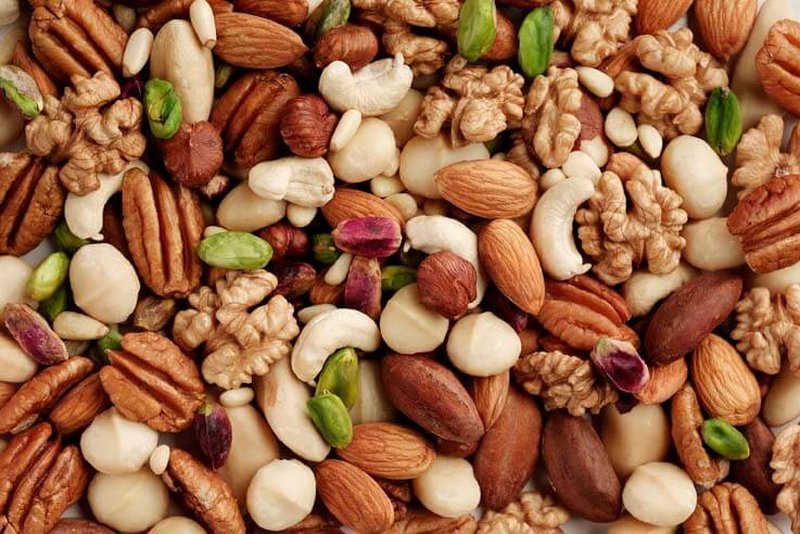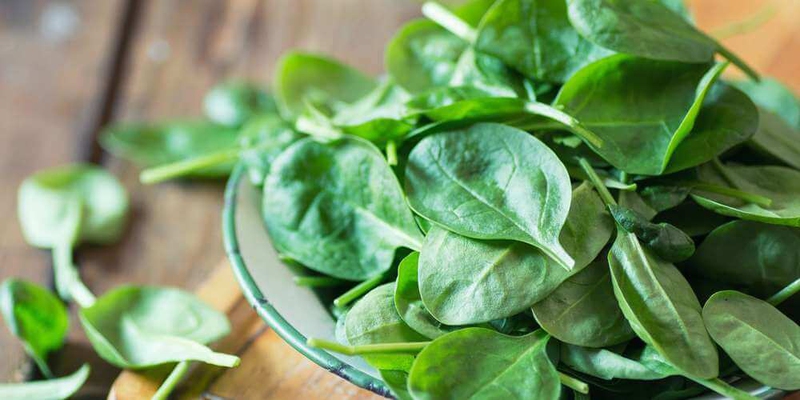Do you know the importance of fiber for your body? It helps you lose weight, keep your blood sugar stable, lower cholesterol and even let you live a longer life! All your fiber needs can be fulfilled by including more plant based foods in your diet. You also need to know that fibers are divided into two categories - soluble and insoluble, and both of them move inside your digestive tract to make passing your stool easier.
And this article will focus on soluble fiber foods only. The soluble fiber that we consume is broken up by the bacteria present in our colon to create short-chain fatty acids, which in turn help our body to get more energy from them. And since the calories present in these fibers have no effect on your blood sugar levels, they are often not counted towards your total carbs consumption.

Best Soluble Fiber Foods to Consume
Seeds and nuts
For every ¼ cup of dry roasted peanuts you consume, you get 3g of soluble fiber from them! Every 1/3 cup of flax seeds give you 7g of soluble fiber, while sunflower and sesame seeds give you 2.5 grams of soluble fiber. Brazilian nuts and almonds come in last, giving you 1 gram of soluble fiber per serving.
Side note: Flaxseeds are extremely good for your health because apart from giving you a lot of soluble fiber content, they are also right in healthy omega-3 fatty acids, which aid greatly in the reduction of diseases related to the heart. Consuming a tablespoon of these seeds can work wonders for your body!
Legumes
Lentils, peas, lupin bean, mesquite, carob, soybeans, alfalfa, clover, tamarind and beans are included in the legumes family. Beans like navy and black beans are a good source of soluble fiber, giving you 4.5g of fiber for every ½ cup served. Beans like lima or baked beans give you 3g of fiber for every ½ cup served, while kidney beans give you 1g for the same quantity.
On the other hand, you have lentils and peas that give you 1g soluble fiber with ½ cup of serving.
Oats
If you’re the kinda person who is always in a rush and is too busy cooking a healthy meal for yourself, then consuming soluble fiber foods like oat serials is a smart option. ¾ cup of raw oats give you 3g of soluble fiber, while the same serving of cooked oat bran gives you 2.2g of soluble fiber. Cereal oats, on the other hand, provide you with 1.5g of soluble fiber.
Fresh fruits
Pick any fruit that exists - dates, peaches, dried prunes, raisins, cantaloupes, bananas, oranges, cherries, Apples, blueberries, plums, strawberries, fresh and dried apricots… they all give you at least 1g of soluble fiber for each serving. And they’re so delicious!
Green veggies
Not only do green veggies provide you with soluble fibers, but they also give you a healthy dose of a plethora of vitamins, nutrients, minerals and even water! Veggies like carrots, brussels sprouts, kale, spinach, squash, string beans, zucchini, parsnips and cabbage give you a little over 1g of soluble fiber per serving. Sweet potatoes give you 1.8g, while asparagus give you 1.7g of soluble fiber.
Health Benefits of Soluble Fiber Foods
Lowers cholesterol levels
Your low-density lipoprotein or bad cholesterol level is kept in control if you consume a healthy amount of flaxseed, oats or beans on a regular basis.
Heart protection
Not only are your cholesterol levels are kept in control, but soluble fibers also remove excessive cholesterol particles, which in turn protects your heart from serious heart ailments and diseases.
Diabetes protection
As already mentioned above, since eating foods with soluble fibers do not add to your carbs (because of their inability to be absorbed quickly), they have zero effect on your blood sugar levels. And irrespective of the type of diabetes you have, in some cases soluble fibers have shown to keep your problem in control as well.
Weight loss
Unlike low fiber foods, high-fiber foods are more filling, which means that for the same quantity of foods eaten, high fiber ones will keep your hunger at bay for a longer period of time than low fiber foods. They are also a boon for those opting for Low Carb diets or Ketogenic diets.





View All Comments /Add Comment